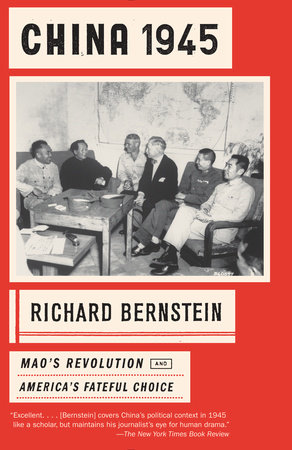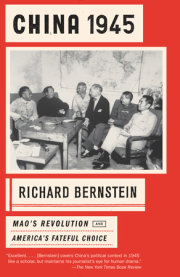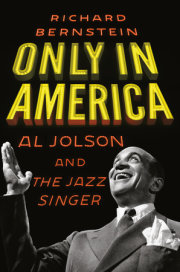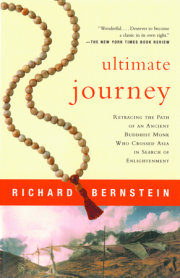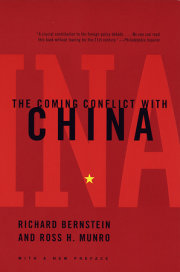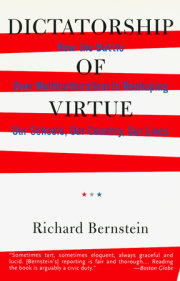As part of the Sino-Soviet agreement, a negotiating committee, set up ostensibly to supervise the transfer of control from the Soviet Union to China, was already in place in the city of Changchun in south central Manchuria, which was where Marshal Malinovsky had his headquarters. Malinovsky, the hard, seasoned, highly decorated, utterly reliable Communist officer, the man in whom there was “not a drop of gentleness,” was from an impoverished family in Ukraine. He had escaped a nasty childhood by joining the pre-Soviet Russian army when he was fifteen years old, and he had been fighting ever since, participating in just about every Russian and Soviet armed conflict occurring during his lifetime. He was wounded twice during World War I. He fought on the Soviet side in the civil war that followed the revolution of 1917. He was a volunteer during the Spanish Civil War, and when he returned home he was awarded the Order of Lenin in recognition of his bravery. After the German attack in 1941, he became one of the heroes of the bloody, do-or-die defense of Stalingrad where, for the first time in World War II, the tide turned in favor of the Russians, and he got the Order of Suvorov for outstanding generalship, the highest decoration in the Soviet army.
Later, Malinovsky was the victor in the battles for Budapest, Brno, and Bratislava as the Russian armies ground down German divisions in the march to Berlin. At the end of the war in Europe, he was transferred to Asia, and he commanded the Soviet rout of the Japanese in Manchuria. Years later, he was minister of defense of the Soviet Union; in 1960 he was pictured on the cover of Time magazine under the headline “Russia’s New Hard Line.” He was “hulking” and “impassive,” the magazine said; he was “a true son of the socialist motherland,” according to the Soviet leader Nikita Khrushchev. He was short and heavy-set with a kind of bulldog determination imprinted on his unsmiling face, not a man to be intimidated or to be afflicted by the sentiment known in the Communist lexicon as bourgeois humanitarianism. He was also, as the Chinese delegation soon discovered, a master of a kind of bureaucratic obstructionism, of the fake excuse.
The Chinese team, led by General Hsiung Shih-hui, arrived in Changchun on August 12. They soon had occasion to count the many ways by which the Russians could hinder them in achieving their purpose, which was to replace the Soviets with soldiers and officials of the central government. There were petty obstructions. The Chinese learned, for example, that the Soviets had ordered a suspension in the Bank of China’s activities in Manchuria, so the negotiating team had difficulty paying its expenses. At one point, complaining of some press coverage of Soviet domestic politics, the Russians actually searched the KMT offices in Changchun, summoned the entire staff for interrogation, accused them of distributing propaganda without first getting permission from the Soviet high command, held them overnight, and then ordered them to cease all their activities, including the sending of teams to investigate conditions in various places in Manchuria. For weeks, the Soviets complained about what they called “anti-Soviet activities” in Manchuria, and they held the KMT’s representatives responsible. The Soviets even refused to allow the Chinese to send representatives to Jehol, the region just west of Manchuria, to buy leather for uniforms, saying that the route to Jehol was “disorderly.”
One member of the team, an American-educated economist named Chang Kiangau, noted on arriving at the Changchun airport that it was “filled with Soviet officers and soldiers,” and that there were very few Chinese around. “Then we found that we cannot use the national currency,” he wrote in his diary. “On the same day I received a report saying the Soviet Army was plundering industrial equipment”—power generators, furnaces, broadcasting equipment, automobiles, even office furniture. When the Chinese asked when they could install their own administrations in various places, Malinovsky replied that he needed to get instructions from his superiors. When asked if he could provide transportation for the Chinese delegates, Malinovsky said there were no vehicles, ships, or planes available, though, he added, “this issue can be negotiated between the two governments on the basis of the Sino-Soviet treaty.” Would the Soviets allow the Chinese to take over the printing bureau of the former puppet regime? Malinowsky needed to seek instructions from his superiors on that too.
Not surprisingly, the initial meetings with the Soviet commander led Chang to the impression that “the Soviets have no intention of actively supporting the transportation of our troops into the northeast,” though Soviet obstructionism was always veiled behind a phony offer of some other way to help. Malinovsky urged the Chinese to use the railroads to move their men into position, but the Chinese knew, and surely Malinovsky knew, that Communist troops in Shanhaiguan had cut the railroad lines between Manchuria and China proper.
As October wore on, the fullness of Soviet control of Manchuria became clearer and clearer, the obstructionism less petty. An aide to Malinovky identified by Chang as Major General Pavlovsky, formally notified the Chinese that they considered all the former Japanese industrial equipment in Manchuria to be war booty that belonged to the Soviet Union. The Chinese protested. The Soviets compromised, saying that Japanese state-owned industry would be war booty. Private Japanese property, of which there was much less, could go to China. The Soviets had 1.5 million troops on the ground. There was nothing China could do to resist.
It’s easy to imagine the disadvantage of the Chinese in what was supposed to be collaboration but was really a dictation of terms. Here was Malinovsky, representing the triumphant army of the second most powerful country on earth, facing off against the representative of a weak, devastated, and divided country armed with nothing much more than the declared friendship of a faraway superpower. On the most urgent matter of the ostensible return of Manchuria to Chinese government control, General Hsiung informed Malinovsky that China intended to transport troops from Hong Kong on American vessels and land them at the port of Dalian. Malinovsky’s reply was that the Sino-Soviet treaty had declared Dalian to be an open city devoted only to commercial purposes, and therefore it would be a violation of the treaty to allow Chinese troops to land there. In other words the Soviets, having, in that very treaty, recognized China’s central government as the country’s sole legitimate authority, to which they were obliged to give moral and material support, were now telling that same government that it was barred from dispatching its own armed forces to portions of its own territory.
Astonished at the bluntness and audacity of Soviet obstructionism, Chang Kia-ngau wrote to Chiang Kai-shek warning him that the Soviet intention was to create a “special regime” in the north wherein the northeast provinces of China would be “completely surrounded.” “I’m afraid even the Manchurian coastline is in danger of being blockaded,” Chang said, and when that happened, “the northeast is bound to become a sitting duck for the Soviet Union.”
Malinovky, always ready with some reasonable alternative solution, assured the Chinese and their American escorts that, while Dalian, which was Manchuria’s biggest and best deep-water port, was closed to them, they could land troops farther north at the smaller ports of Huludao and Yingkou, and the Americans, not wanting a fight, agreed to that. But when the small armada of American ships arrived at Huludao, they found that Chinese Communist troops were in control of the port and were vowing to fight if the government forces tried to land there.
It was an extraordinary scene. As at Chefoo earlier, Rear Admiral Daniel E. Barbey was in command of the American ships, charged with helping the government retake control of its territory. Barbey had ample forces with him to deal with the Communists if it came to a fight, but he had been instructed to avoid conflict. Given the circumstances, he told the Chinese Nationalists to negotiate the matter with the Russians. General Hsiung duly brought up the landing at Huludao with Malinovsky, pointing out that the Soviet commander had assured him of a safe disembarkation there. Malinovsky had given a window between November 5 and 10 for the landing. The American task force arrived on the 7th. Malinovsky replied that the Communist troops had not come through territory under Soviet control but from the south, so what could he do? The ever-eager-to-help Malinovsky suggested that Hsiung talk things over with the Eighth Route Army, which Hsiung naturally said he could not do, knowing that the Communists were not going to politely give up Huludao and allow government troops to land there just because he asked them to. When Hsiung inquired of Malinovsky what the Russians would do if there was a clash between the Communists and the government troops, the Soviet commander’s reply was that he would desist from interfering in China’s internal affairs.
The task force, still under Barbey, proceeded to Yingkou, the last alternative Manchurian port where the government troops could be landed. There, the Communist-appointed mayor of the town was on the dock shouting to the Americans at the railings of their ships that the Communists would resist any effort by the government to land its forces. Barbey, following orders not to interfere in China’s internal affairs, ordered the ships back to sea. The landing of the government forces would take place well to the south at the port of Qinwangdao, and, indeed, after sailing the Bohai for days with no result, the American task force deposited its consignment of troops there in mid-November.
By now, Chiang Kai-shek’s son, Chiang Ching-kuo, who spoke fluent Russian, had joined the Chinese negotiating team at Changchun. On November 4, the younger Chiang went to see Malinovsky and complained to him that Communist troops had prevented the expected landing of government forces at Yingkou. Malinovsky’s reply was that Soviet troops were few in number in Yingkou, so resistance to the Communist troop movements was impossible. “It is very clear,” Chang Kia-ngau noted in his diary, “that the Soviets deliberately are allowing Eighth Route Army men into Huludao and Yingkou to obstruct the efforts of government troops to land there.”
Chang Kia-ngau was beginning to understand the reasons for Soviet obstructionism: the friendly wartime relations between the United States and the Soviet Union were turning sour in the postwar period. Many times, speaking in a “stern” tone, Malinovsky protested to the Chinese that the Americans had sent a warship to Dalian. Chang understood that the Russians wanted to exclude any and all American forces from Manchuria, and this put China in a bind. In the background to this were American actions to exclude the Soviets from playing a role in the occupation of Japan, which Moscow was demanding as a reward for the five days its troops had participated in the war. Soviet propaganda trumpeted the theory already advanced by Mao that it had been the Russian invasion of Manchuria, rather than the succession of American victories in the Pacific and the use of the atomic bomb, that had turned the tide in the Asian war. This was the justification advanced by the Russians as they systematically stripped Manchuria of Japanese-built industry. Possession of the Japanese-built factories was just compensation for the losses the Soviets had suffered in the war. The message was clear: If the United States insisted on monopolizing postwar Japan, the Soviets would do the same in northeast Asia.
And so the charade continued. Malinovsky’s next helpful suggestion was for the central government to airlift troops into the cities of Mukden and Changchun, and dilatory negotiations proceeded in November on the execution of this plan. But by this time, Chiang Kai-shek was growing pessimistic about the whole Manchurian matter, uncertain that he could prevail if he forced the issue and worried that any steps toward civil war would incur the anger of the population. This was easy to understand. China’s revitalized press was full of ardent expressions of hope for civil war to be avoided. At the end of October, ten liberal professors in Kunming, still the location of several of the universities displaced during the war, sent an open letter to Mao and Chiang urging the end of China’s “one-party dictatorship” and the convocation of a political council composed of representatives of all parties and factions. Noting the growth of this sentiment, the American embassy cautioned that “these professors are distressed at what they described as the ‘new American policy toward China.’ They’re at a loss to understand the ‘all-out support’ given to the Central Government by the U.S., which they believe merely increases the determination of Gen Chiang Kai-shek not to establish a genuine coalition government in China and not to surrender any real power now held by the KMT.”
The Communists, cleverly aligning themselves with this growing trend in public opinion, were making the same complaint about the KMT’s one-party dictatorship and the same demand for a coalition government. In fact, Chiang Kai-shek had announced plans to hold a political consultative conference in Chungking in November, a gathering of all the political factions in China that would decide on the means for later elections to a national assembly. Chiang seemed in this to be responding to the clamor among the intelligentsia and to pressure from the United States to move toward democracy, and, indeed, he had taken some steps in that direction. In the spring, even as the CCP was holding its ceremonial glorification of Mao at its Seventh Congress, Chiang presided over the Sixth Kuomintang Conference, the first since 1938. Among its resolutions was one calling for a general national conference for later in the year that would make arrangements for a multiparty election for a new national assembly. Chiang also ended the system of stationing political commissars with every major army unit, a move, urged on him by his American advisers, that aimed at moving away from party control of the armed forces—a move that the Communists have not made to this day. When the war ended, Chiang also took steps toward political reform, notably ending press censorship and releasing political prisoners. Was this pure window-dressing, as the Communists and many later historians have assumed? The Chinese government under Chiang was still a one-party dictatorship, but public criticism was taking place and being tolerated; there was ferment in the air. The announcement of a political consultative conference was an element of this ferment, and at the end of the talks in Chungking, Mao agreed to it in principle, though, as we will see, the Communists never really gave it much of a chance in practice.
Mao’s own sincerity is deeply questionable. In Yenan after his negotiation with Chiang ended, Mao oversaw the CCP’s propaganda, which advertised the CCP as the party of peace, and he continued to move his troops as fast as possible into Manchuria. The Eighth Route Army had blocked all the ports except for Qinwangdao. In mid-November, Lin Biao occupied Changchun, one of the cities that the Soviets had designated as an airlift destination for government forces. The Soviets, always eager, they said, not to interfere in China’s internal affairs, did nothing to stop this from happening. Chiang Kai-shek was reduced to hoping that if he could maintain good relations with the Russians, proving to them that he would cause them no trouble in Manchuria, they could still be persuaded not to help the Communists. And so the plans for an airlift were dropped.
Copyright © 2014 by Richard Bernstein. All rights reserved. No part of this excerpt may be reproduced or reprinted without permission in writing from the publisher.

